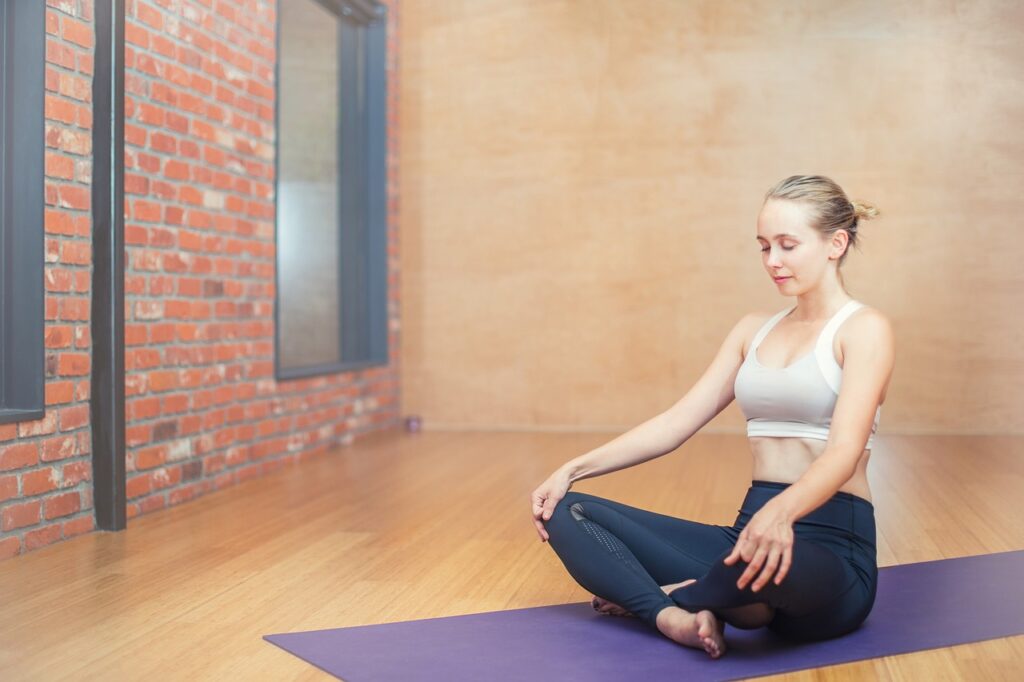Yoga is a holistic practice that originated in ancient India, encompassing physical postures (asanas), breathing exercises (pranayama), meditation, and ethical principles. Yoga It is designed to promote physical, mental, and spiritual well-being. Here are some key aspects of yoga:
Key Components of Yoga
- Physical Postures (Asanas):
- Asanas are specific body positions designed to improve flexibility, strength, balance, and overall physical health. Different styles of yoga may emphasize various postures, ranging from gentle stretches to more intense strength-building poses.
- Breathing Techniques (Pranayama):
- Pranayama involves controlled breathing exercises that enhance respiratory function and promote relaxation. These techniques help increase oxygen flow to the body and calm the mind.
- Meditation:
- Meditation is a fundamental aspect of yoga that encourages mindfulness and focus. It involves techniques to quiet the mind, enhance concentration, and foster a sense of inner peace.
- Philosophy and Ethics:
- Yoga is rooted in ancient philosophies that emphasize ethical living, self-awareness, and connection to the universe. The Yoga Sutras, a foundational text, outlines ethical principles (Yamas and Niyamas) that guide practitioners in their personal and spiritual development.
- Relaxation:
- Many yoga practices include relaxation techniques that help release tension and promote mental clarity. This can involve guided relaxation at the end of a session, allowing the body and mind to absorb the benefits of the practice.

Benefits of Yoga
- Physical Health:
- Regular yoga practice can improve flexibility, strength, posture, and balance. It can also aid in the management of various health conditions, such as chronic pain, hypertension, and respiratory issues.
- Mental Well-being:
- Yoga helps reduce stress and anxiety, promoting a sense of calm and emotional stability. It can enhance focus, concentration, and cognitive function.
- Emotional Resilience:
- The mindfulness and introspection involved in yoga can lead to greater self-awareness, emotional regulation, and resilience in the face of challenges.
- Spiritual Growth:
- For many practitioners, yoga serves as a path to spiritual exploration and growth, fostering a deeper connection with oneself and a greater sense of purpose.
- Enhanced Quality of Life:
- By integrating physical, mental, and spiritual practices, yoga can contribute to a balanced and fulfilling lifestyle, enhancing overall well-being.

Different Styles of Yoga
- Hatha Yoga: Focuses on basic postures and breathing techniques, making it accessible for beginners.
- Vinyasa Yoga: Involves flowing sequences of poses, synchronized with breath, creating a dynamic practice.
- Ashtanga Yoga: A rigorous style that follows a specific sequence of poses and is physically demanding.
- Yin Yoga: Involves holding poses for longer durations to target deep connective tissues and promote relaxation.
- Restorative Yoga: Focuses on gentle, relaxing poses supported by props to facilitate deep relaxation.
Yoga is adaptable, allowing practitioners to tailor their practice to their individual needs, abilities, and goals. Whether practiced for physical fitness, stress relief, or spiritual exploration, yoga offers a comprehensive approach to enhancing overall health and well-being.


